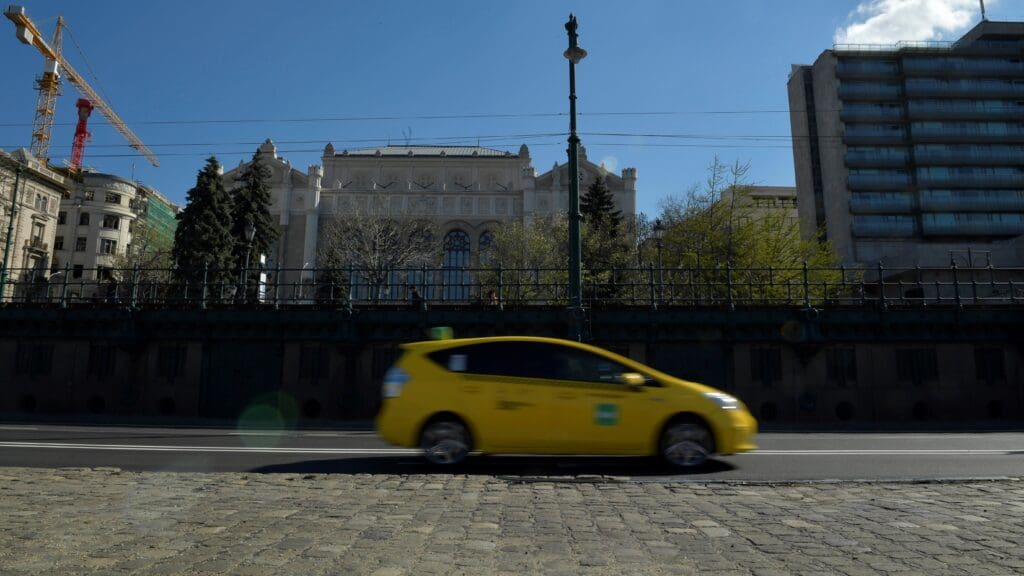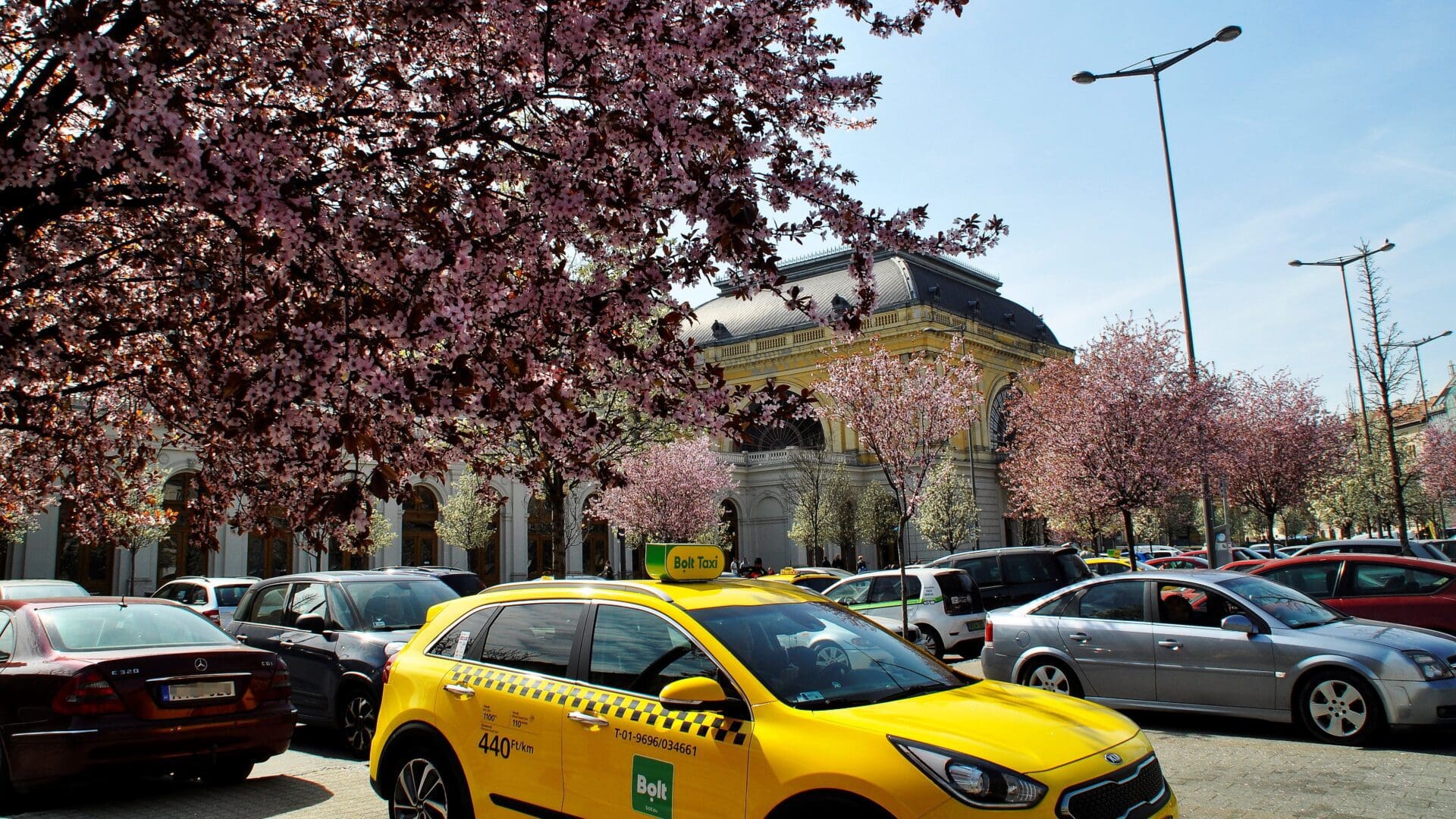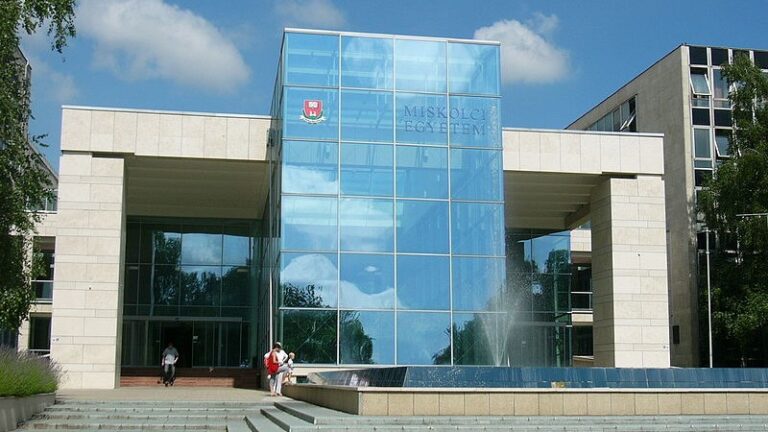The Hungarian Taxi Association has submitted a complaint to the Budapest Municipality regarding Bolt’s trademark usage practices, demanding equal competition conditions with traditional taxi companies. The proposal implicitly aims to exclude the Estonian-based technology company from the market. This comes after the summer of 2016, when there were consecutive taxi protests, legal recourses and petitions which led to Uber eventually withdrawing from the Hungarian market.
Trademark Use Objections
The Hungarian Taxi Association (OTSZ) has proposed the annulment of a transportation planning decision to the Budapest Municipality, according to information obtained by Index. The letter in their possession indicates that Zoltán Metál, the president of OTSZ, requested the municipality to annul the personal taxi service permits granted in 2021 to Bolt HTX Kft. and the associated businesses by BKK, the Centre for Budapest Transport. According to his argument, these permits are illegal. Metál took issue primarily with Bolt’s trademark usage practices. His justification states that the current legal regulations precisely define the unified text and logo that can be displayed on personal taxis, and deviations from this can only be made using a protected trademark. However, this is only possible if both the text and the logo are protected and approved.
Zoltán Metál pointed out that Bolt HTX Kft. and the contracted personal taxi companies have to use a distinct text that says ‘Bolt Taxi’ regarding form, font type, and colour selection, which has been approved by BKK. However, the Bolt franchise’s international parent company, registered under the Hungarian public trademark register holds the trademark ‘BOLT TAXI,’ which does not correspond to the concept of a ‘protected trademark’ and is therefore not suitable for transportation planner approval, as it should be an illustration-based trademark, not a word-based one.

The Bolt franchise’s international parent company holds a similar image-based trademark in Estonia (submitted to the EU in 2023) with inverse colour selection (green letters on a white background)—which does not match the logo used on personal taxis in Hungary. Based on these observations, Zoltán Metál concluded that the decision granting approval by BKK for the Bolt HTX Kft. dispatch service and the associated businesses to use a different text and place the logo on the doors of personal taxis is gravely and clearly unlawful.
The Case of Uber in Hungary
In 2016, Uber was forced out of the Hungarian market after a period of intense controversy and protests from the traditional taxi industry, and it is not unlikely that this proposal will yield similar results. The conflict between Uber and local taxi companies highlighted the challenges posed by the emergence of ride-hailing platforms in the country. The Hungarian government, supported by the traditional taxi associations, argued that Uber’s operations violated existing regulations and posed unfair competition to licensed taxi drivers. They claimed that Uber drivers did not comply with the same legal requirements, such as obtaining a taxi licence and paying the necessary taxes and fees, which put traditional taxi drivers at a disadvantage.
The protests by the taxi industry against Uber gained significant attention, with drivers staging demonstrations and blocking major roads in Budapest. The taxi drivers demanded stricter regulations and the elimination of what they perceived as an illegal and unfair ride-hailing service. In response to the mounting pressure and legal concerns, Uber announced in July 2016 that it would suspend its operations in Hungary indefinitely. The decision was made to comply with local regulations and seek a more favourable regulatory environment for its services. Uber expressed its willingness to engage in discussions with Hungarian authorities to find a viable solution.
Following Uber’s withdrawal, other ride-hailing platforms, such as Taxify (later rebranded as Bolt), entered the Hungarian market. These companies aimed to navigate the regulatory landscape more effectively by working closely with authorities and addressing the concerns raised by the traditional taxi industry. The disappearance of Uber in Hungary marked a significant turning point in the country’s transportation landscape, prompting discussions on the future of mobility and the need for updated regulations to accommodate innovative transportation services while ensuring fair competition.
Read more:








